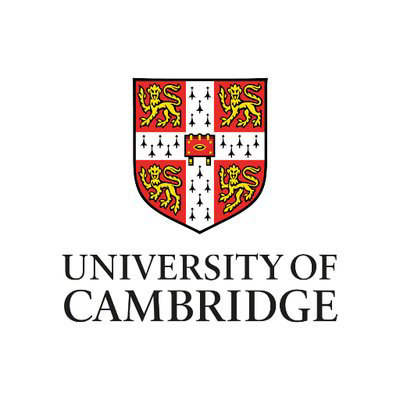
University of Cambridge case study: One Cloud Cisco
Explore how the University of Cambridge used One Cloud Cisco, a new simple and efficient unified communications system, delivered by BT, to save £1m a year.
Driving down costs
One of the world’s oldest universities, Cambridge has been a preeminent institution of higher learning since 1209. Today, it comprises 31 colleges and over 150 departments, faculties, and schools. A new Unified Communications System delivered by BT is expected to save the University £1m a year.
As a leading research centre, Cambridge affiliates have won 85 Nobel Prizes, more than any other institution in the world.
Fitted in 1985, the university’s outdated telephone system had grown to three times larger than its planned size and was showing its age – causing management problems and making maintenance increasingly expensive.
In replacing it, Cambridge wanted greater operational simplicity, higher efficiency, and lower costs. To help determine who should supply the new communications system, Cambridge turned to PTS Consulting Group, with whom it has a long-term relationship.
Cambridge needed a platform that would reflect its reputation as one of the world’s greatest centres of learning and research.
The installation and service contracts were won by BT, who proposed a Cisco solution. “What came across strongly with BT was its partnership with Cisco,” Craig continues. “Proven experience with the Cisco Unified Communications Manager and knowledge of IP telephony were further clinching factors.”
One of the largest communication systems in education
The result would be one of the world’s largest Cisco communications systems in the education sector. 16,000 new telephones (the vast majority being IP-based devices) had to be installed in more than 300 university buildings and public locations. The task was organised into 199 different work packages – from six handsets to several hundred handsets each.
A major procedural challenge was that most of the colleges, departments, faculties, schools, and other institutions had their IT teams. The central computing services team does not look after all the Local Area Networks (LANs); each unit supports its own. Therefore, they had to be managed as separate IP telephony-enablement projects, adding wheels-within-wheels complexity.
Craig Fenton explains: “BT understood this better than the other contenders and came forward with a more suitable migration plan and strategy. They were willing to work with us to deploy and support the core system over these multiple networks.”
After the contract was announced, a pilot site was deployed for the computing services team. Wherever possible, standard configurations were used to simplify the installation and ensure that deployments to each site were kept on schedule. The installation went speedily.
“Building a system of this size was a huge achievement,” says Jake Hornsby, head of networks at the University. “It was rolled out without affecting users. The installation was so well organised that it was completed two months earlier than planned. We’re delighted.”
With the Cisco Unified Communications Manager system now installed, the University of Cambridge expects a £1 million annual cost saving compared to the old system. With data and voice communications running over the same infrastructure, the need for redundant wiring and hardware has been eliminated
Wide-reaching benefits
But the value is not simply monetary. The many features of the new communications system help users spend less time chasing people, and more time being productive. For example, BT integrated the new Cisco system with an existing voicemail application to ensure no one misses an important call.
With Caller ID, people can screen incoming callers, while phone calls can be initiated from a PC at the click of a mouse. Cambridge users quickly seized on the flexibility advantages of their new communications system.
According to Craig Fenton: “The Department of Social Anthropology recently went through a building refurbishment. They simply unplugged the phones and moved them around the building themselves, saving a fortune.”
System administrators also enjoy new benefits:
- easier management through a web-based interface
- the ability to quickly scale up total system capacity
- flexible management: simple handset moves, adds, and changes
- greater accountability through accurate equipment and usage information for more precise expense management and billing.
“As one of the world’s leading universities, Cambridge is keen to continue to attract and retain the very best students and researchers,” concludes Dr Ian Lewis, director of computing services at Cambridge. “Part of that involves providing thoroughly modern facilities that reflect our forward-looking relationship with technology. With the new Cisco communications system from BT, we’re confident we can accomplish this.”
